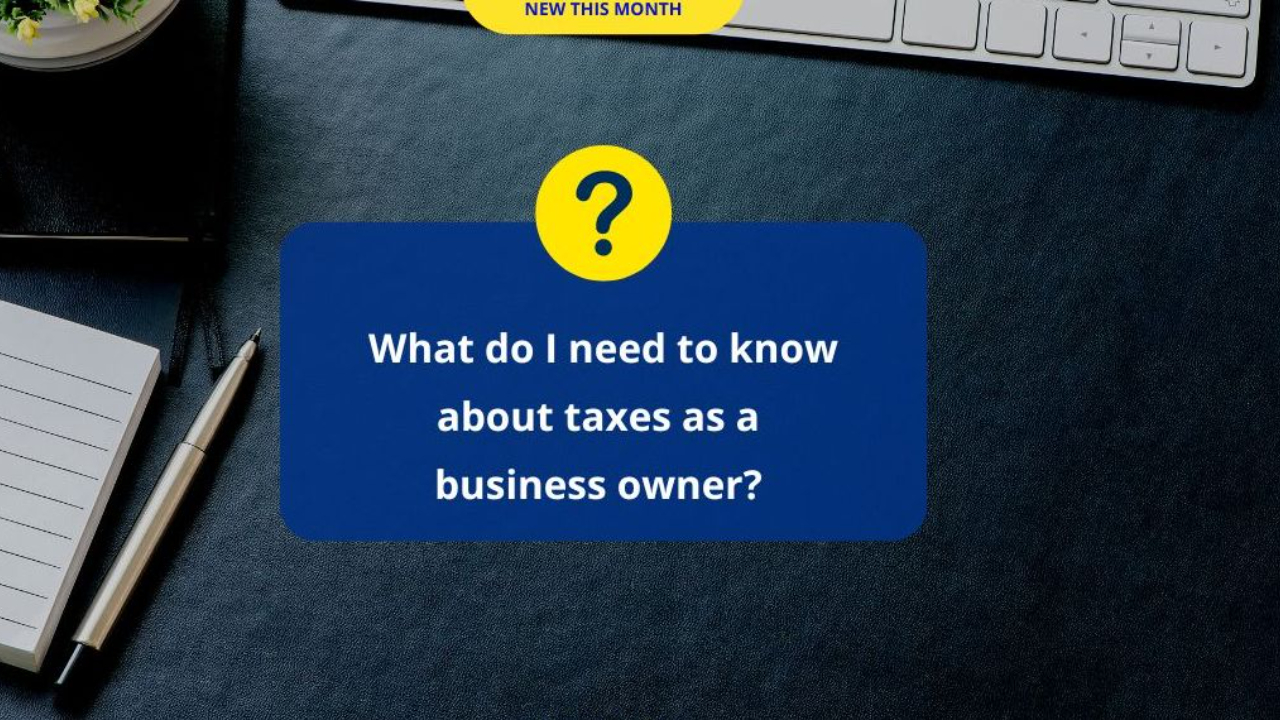
What do I need to know about taxes as a business owner?
Mar 30, 2023Understanding How Taxes Work
As a business owner, understanding how taxes work is a crucial part of running your business. Taxes can be complex and overwhelming, but having a basic understanding of the tax system can help you make informed decisions and manage your finances effectively. Here are some key concepts related to taxes that every business owner should know.
Types of Taxes
There are several types of taxes that businesses may be subject to. The most common types of taxes are income tax, sales tax, payroll tax, and property tax.
Income Tax: Businesses are required to pay income tax on the profits they earn. The amount of income tax owed is calculated by subtracting business expenses from business income. The tax rate varies depending on the type of business entity (e.g., sole proprietorship, partnership, corporation) and the amount of income earned.
Sales Tax: Businesses that sell goods or services are often required to collect and remit sales tax to the state. The tax rate varies by state and can range from 0% to over 10%.
Payroll Tax: Businesses with employees are required to withhold and pay payroll taxes, which include Social Security and Medicare taxes, as well as federal and state income tax withholding. The employer is also responsible for paying a portion of these taxes.
Property Tax: Businesses that own real estate or personal property (e.g., equipment, vehicles) may be subject to property taxes. The amount of property tax owed is based on the value of the property and the tax rate set by the local government.
Tax Deductions
One of the benefits of owning a business is the ability to deduct certain expenses on your tax return. Deductions reduce the amount of taxable income, which in turn reduces the amount of taxes owed. Some common business deductions include:
Business Expenses: Business owners can deduct expenses that are necessary and ordinary for their business. This includes expenses such as rent, utilities, supplies, and travel expenses.
Depreciation: Business owners can deduct the cost of certain assets (e.g., equipment, vehicles) over a period of time through depreciation.
Home Office: Business owners who use a portion of their home for business purposes may be eligible for a home office deduction.
Qualified Business Income: Business owners who are structured as a pass-through entity (e.g., sole proprietorship, partnership, S corporation) may be eligible for a deduction on their qualified business income.
Tax Planning
Proper tax planning is essential for minimizing your tax liability and keeping your finances in order. Some key tax planning strategies for business owners include:
Hiring a Tax Professional: A tax professional can help you navigate the complex tax system and ensure that you are taking advantage of all available deductions and credits.
Recordkeeping: Keeping accurate records of your income and expenses is essential for preparing accurate tax returns and minimizing your tax liability.
Estimated Taxes: Business owners are typically required to make quarterly estimated tax payments based on their projected income and expenses for the year.
Retirement Planning: Business owners can contribute to tax-advantaged retirement plans (e.g., 401(k), SEP-IRA) to reduce their taxable income and save for retirement.
Taxes can be a complex and overwhelming topic for business owners, but having a basic understanding of the tax system is essential for running a successful business. By understanding the types of taxes you may be subject to, taking advantage of available deductions, and implementing tax planning strategies, you can minimize your tax liability and keep your finances in order. Don't hesitate to contact us https://www.kennycpa.com/contact-us/ to ensure that you are meeting all of your tax obligations and taking advantage of all available opportunities to reduce your tax burden. We want to help you create business value. Contact us and see if we are a good fit for your business.
Leave a reply
We hate SPAM. We will never sell your information, for any reason.

